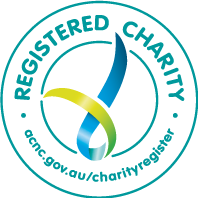The Australian context
Australian, state and local governments
There are three levels of government in Australia:
- The Australian Government, also referred to as the Federal or Commonwealth Government
- State and territory governments
- Councils, sometimes referred to as local governments
Each level of government is responsible for providing certain care and support services, and in some cases, they may share responsibilities.
As part of your child or loved one’s care and support, you will receive services from each level of government.
Health and disability systems
The health and disability systems provide many examples of the sharing of responsibilities between the levels of government. For example, the Australian Government manages responsibility for payments to doctors and for pharmaceuticals, while the states and territories are responsible for hospitals. Local councils have some responsibilities in infant health care, such as immunisations.
It may be important to know which level of government is providing you with which types of support. For example, if you wish to seek Ministerial assistance, you will need to know which Minister to contact.
It can be confusing to navigate the two systems, especially as it seems such an artificial divide between health and disability, and your child or loved one will require services from across both systems. Rare Find Foundation can support you to navigate this challenging area.
Public and private health care
In Australia, both public (government) and private organisations provide health care. The type of highly specialised medical care that is provided for individuals with Tay-Sachs and Sandhoff diseases is provided through the public system.
The Australian Government supports the cost of healthcare under the Medicare system. If you have a Medicare number, you are entitled to free treatment as a public patient in a public hospital. You may also receive free or discounted treatment when seeing your GP, a specialist and some allied health professionals.
It is important to note that you are still entitled to free care in a public hospital, even if you have private health insurance.
The National Disability Insurance Agency (NDIA), is the Australian Government agency responsible for implementing the National Disability Insurance Scheme (NDIS). The NDIS provides funding to Australians who have a permanent and significant disability, and also provides information and linkages to services in the community.
If your child or loved one has Tay-Sachs or Sandhoff disease, they will likely be an NDIS participant. As such, their Plan will cover the costs of allied health care required to achieve their goals.
See the Financial support section for additional information.
Eligibility
The Australian Government has eligibility requirements in place for access to things like Medicare, as well as the NDIS. For example, there are certain requirements around citizenship and residency.
If you don’t meet these requirements, please don’t hesitate to reach out to Rare Find Foundation. We will do whatever we can to understand your unique situation, support you through your journey, and advocate for you to gain access to these essential services. See the Advocacy support section for more detail.
 Further Information
Further Information
You can find out more information at the following websites.
- Australian Government, Services Australia, Medicare: https://www.servicesaustralia.gov.au/individuals/subjects/how-enrol-and-get-started-medicare/enrolling-medicare
- NDIS, Am I eligible: https://www.ndis.gov.au/applying-access-ndis/am-i-eligible
